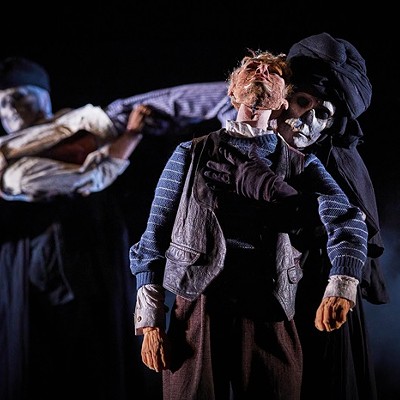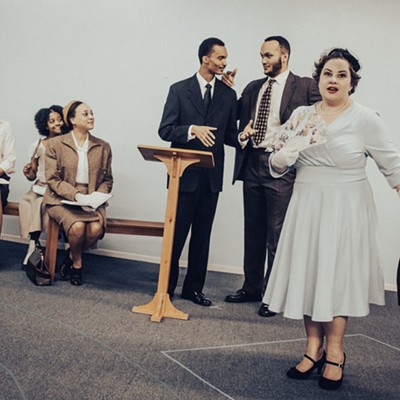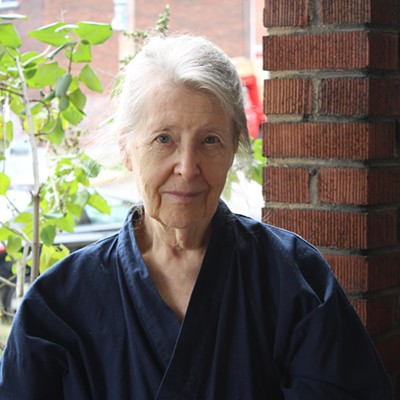While critical curmudgeons can poke holes in the "laughter through the tears" description of Anton Chekov's full-length plays as "comedy," no such linguistic legerdemain is necessary for his briefer works. Pittsburgh Irish & Classical Theatre caps its Chekhov Celebration with Funny Chekhov: Plays and Vaudevilles by Anton Chekhov and an abundance of scenery-chewing.
Actors get to be directors and/or let down their theatrical hair in this well-chosen Chekhovian quintet, led by the well-known "The Bear: A Vaudeville." The title refers not to a large hairy quadruped (though we don't really know how hirsute is Leo Marks in the title role) but a boorish person. Director Martin Giles keeps the comedy on "broad" and the sexual tension on "high" between Marks and Nike Doukas as a widow wreaking an unusual "vengeance" on her late husband.
Doukas becomes director with "The Proposal: A Vaudeville," which showcases a more physical comedy from the would-be "lovers," played here by Christian Conn and Vera Varlamov. Matt DeCaro provides solid support as her father.
"On the Evils of Tobacco: A Comic Sketch" is a monumental monologue placed on the veteran shoulders of Larry John Meyers. PICT director Andrew S. Paul directs the herculean performance, which combines serious pathos and hilarity in its many digressions.
Meyers takes his directing turn with "Drama: A Comedy," about a vacationing playwright confronted with the amateur opus of a determined dramatist. Robert Haley vocalizes the pro's grimaces and horrors while Terry Wickline wickedly overplays all the parts (including stage directions) of the fan's script. Joseph Domenic helps out as the luckless Luka, the eternal servant.
The perfect cap to the evening is "Swan Song: A One-Act Play," directed by Marks. It begins as a meandering monologue by Alan Stanford as an actor not aging comfortably. But the play really comes to life when it becomes a dialogue with James FitzGerald. His servant-like character provides a broader perspective and intellectual base to the supporting role. The physical disparity between the two men underlines their sympathetic symbiosis.















